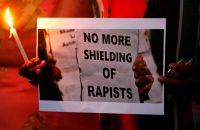Gandhi would be fasting against India’s discriminatory new citizenship law
India is celebrating the 150th birthday of Mahatma Gandhi with widespread tributes. Such was the moral force of the father of the nation’s nonviolence agitation for independence against the British, that he remains the one historical figure about whom little political disagreement is permissible.
Writing in the New York Times recently, Prime Minister Narendra Modi said Gandhi “envisioned Indian nationalism as one that was never narrow or exclusive but one that worked for the service of humanity".
Indeed, India was never modeled on linguistic unity or religious identity, which styled so much of European nationalism. And unlike other countries in India’s immediate neighborhood, the country’s constitution does not allow for discrimination on the basis of religion, region or caste.… Seguir leyendo »





